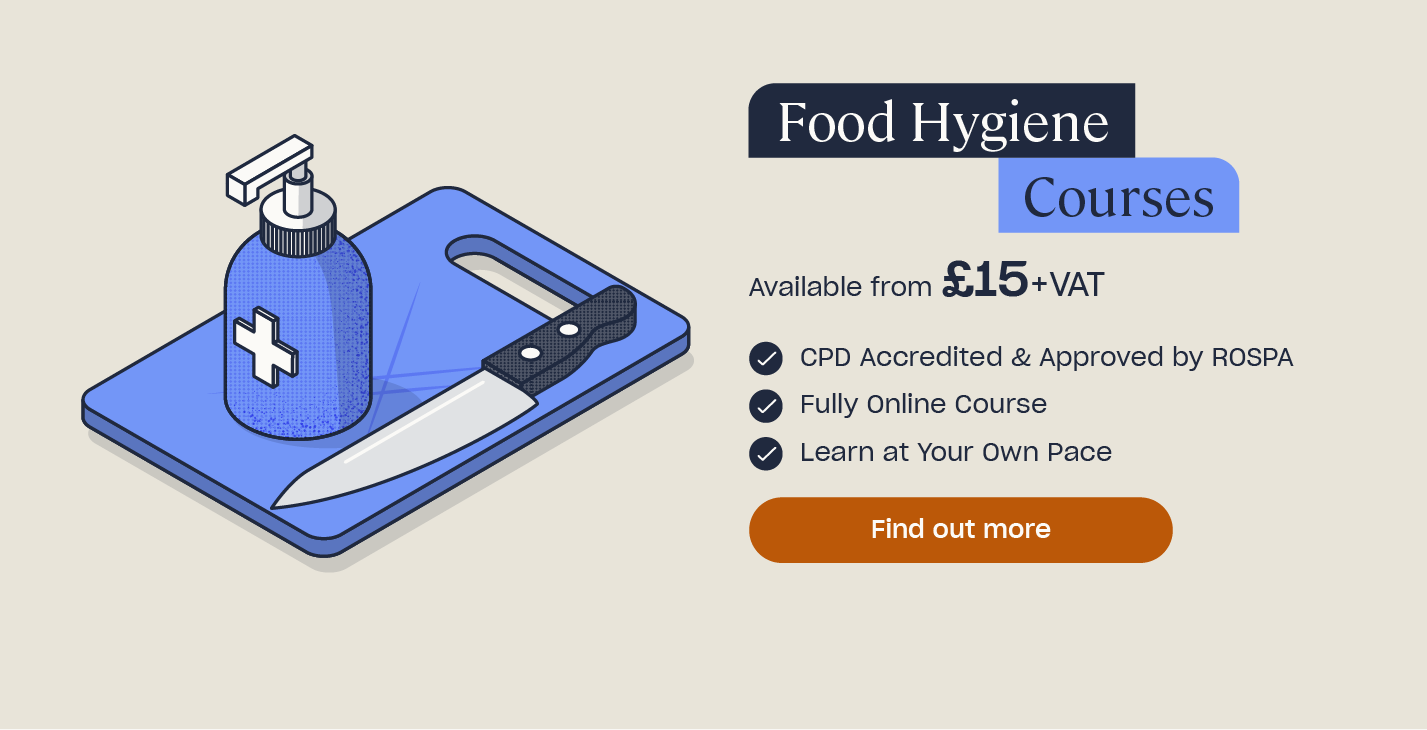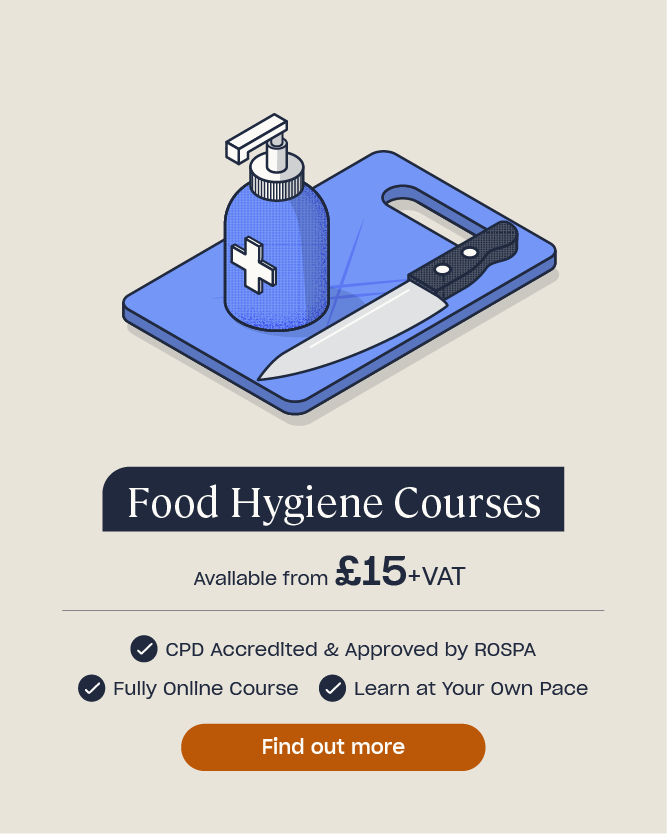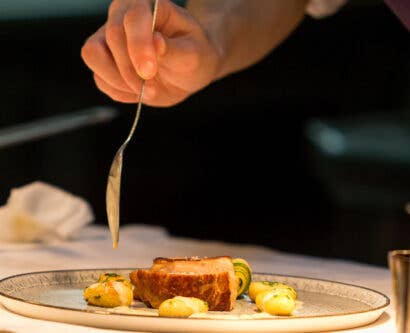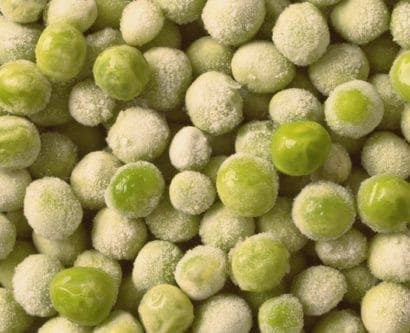How to Become a Butcher
Being a butcher can be a rewarding and practical career for those who enjoy working with food, mastering a craft and providing high-quality products to customers. Whether you’re leaving school or college, or are considering a career change, butchery offers a hands-on role with strong career prospects and opportunities to develop valuable skills. In this article, we’ll look at the key duties and responsibilities of a butcher and which skills and qualifications you’ll need to apply for the role.
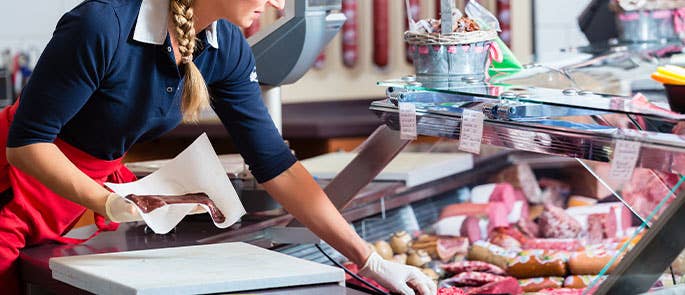
What is a Butcher?
A butcher is a skilled tradesperson who prepares, cuts and sells meat. They work with different types of meat, such as beef, pork, lamb and poultry, ensuring that it is processed safely and to the highest standards.
Butchers can work in various settings, including independent shops, supermarkets, restaurant kitchens, meat processing plants and catering suppliers.
Once qualified, many butchers go on to develop specialist expertise, such as working with game or dry-aged meats, or progress into supervisory and management positions. You could also become a Boucher (Butcher Chef) who has responsibility for preparing meat and poultry before they are delivered to their respective stations in a professional kitchen.
Butcher Duties and Responsibilities
A butcher’s daily responsibilities involve a wide range of practical tasks, many of which may be customer-facing. Attention to detail and a commitment to food hygiene are perhaps the most essential responsibilities in this role, as butchers are in charge of ensuring that products are safe for consumption.
Responsibilities of a butcher include:
- Preparing and cutting meat into joints, steaks, chops and other portions.
- Ensuring meat is stored, handled and displayed in line with food safety regulations.
- Using knives, cleavers and machinery safely and efficiently.
- Weighing, packaging and labelling products for sale.
- Serving customers, taking orders and offering advice on cuts and cooking methods.
- Managing stock, checking deliveries and maintaining records.
- Keeping the work area clean and organised.
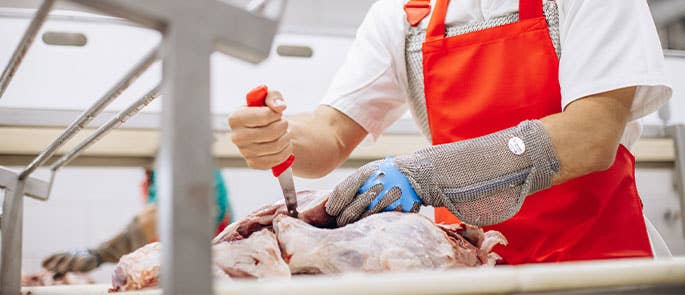
Butcher Qualifications
There are several routes to becoming a butcher, and formal qualifications are not always required. However, many employers prefer candidates who have undertaken relevant training and possess the right hard skills for the role.
Butcher Apprenticeships
The most common route into being a butcher is beginning as a trainee or apprentice and learning the trade on the job. Apprenticeships combine paid work with structured training, allowing you to gain practical experience and industry-recognised qualifications. The company you complete your apprenticeship with is also likely to take you on as a paid worker once you’ve finished training.
Relevant apprenticeships include a Level 2 Butchery, Level 2 Abattoir or Level 3 Advanced Butchery apprenticeship. You’ll need at least two GCSEs at grades 9 to 3 (A* to D), or equivalent, for an entry level apprenticeship or five GCSES at grades 9 to 4 (A* to C), or equivalent, for an advanced level.
Butcher College Courses and Qualifications
Other certifications that will help you to become a butcher include:
- Taking a college course, such as a Level 2 Certificate for Proficiency in Meat and Poultry Industry Skills.
- Completing a food hygiene qualification, such as a Level 2 Award in Food Safety for Retail.
- Ensuring you have basic maths and English skills, such as GCSEs in these subjects.
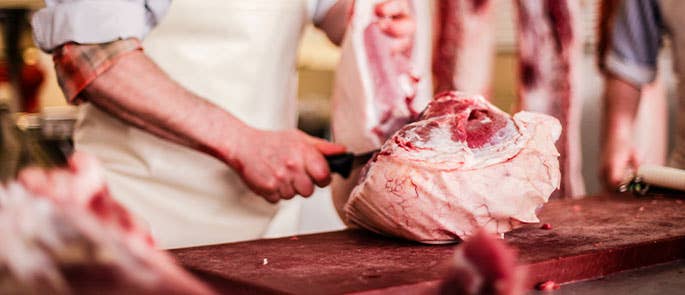
Skills of a Butcher
In addition to technical knowledge, butchers need a range of soft skills to succeed in the role. Strong interpersonal skills are particularly valuable, as many butchers work directly with customers or within close-knit teams.
Other important soft skills of a butcher include:
- Excellent hand–eye coordination and manual dexterity.
- Good customer service and communication skills.
- An eye for detail and commitment to high standards.
- Physical stamina and the ability to work on your feet for long periods.
- A practical, problem-solving approach to tasks.
- The ability to work well in a team.
- The ability to understand and follow kitchen health and safety procedures.
Looking to Learn More?
In the UK, all kitchen staff – including butchers – must know how to manage allergens, prevent allergenic cross-contamination and provide accurate information to customers. Our online Food Allergen Awareness Training will help you understand more about your responsibilities in this area.
How to Become a Butcher
There is no single route into butchery and the path you take will depend on your age, experience and preferred working environment. However, the following steps will help you to pursue the role and become a butcher:
- Choose your entry route
Decide whether you want to begin your journey as a butcher as an apprentice, a trainee in a butcher’s shop or by studying a relevant college course. - Do some practical work experience
Doing some work experience alongside a professional butcher will help you build confidence in handling equipment, cutting techniques and customer service. This experience is vital for progressing in the industry. - Gain food hygiene knowledge
Understanding food safety is a crucial part of the role and many employers will expect you to hold a Food Hygiene Certificate or complete related training as part of your employment. - Write your CV
Ensure that you highlight all relevant experience, qualifications, training and transferable skills that you may have on your CV to showcase your knowledge to potential employers. Our guide to writing your first CV is a good place to start. - Continue developing your skills
As you gain experience as a butcher, you may wish to specialise in a certain area, such as meat preparation for catering or butchery management. Some butchers also move into teaching or food product development roles.
Butchery is a skilled trade that offers a hands-on career with real progression opportunities. With the right training, dedication and attention to detail, a career as a butcher can open doors to a variety of roles across the food industry and be a career that’s both stable and rewarding.
Further Resources:
- Food Hygiene Courses
- How to Become a Chef de Partie
- How to Prevent E. coli
- What is Salmonella and How Do I Prevent It?
- What are the Different Kinds of Food Poisoning?


